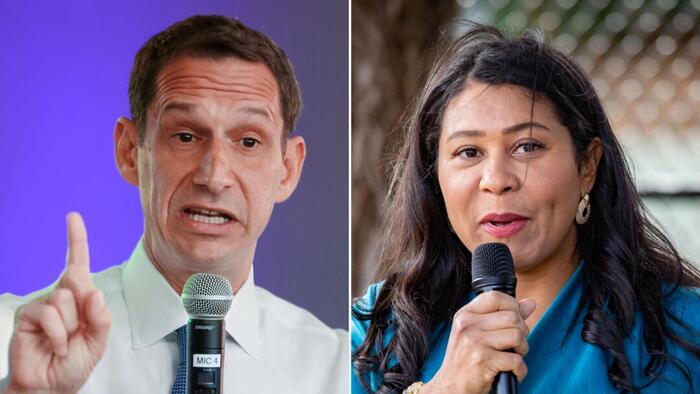In the nascent electoral landscape of San Francisco, philanthropist Daniel Lurie appears to be on the cusp of unseating the incumbent Mayor London Breed in the city’s recent mayoral elections. As of November 6, the vote tally indicated Lurie leading Breed by a significant margin of 12 points, garnering approximately 56 percent of the votes compared to Breed’s 44 percent. Although Breed has yet to concede, she expressed to her supporters a commitment to awaiting the completion of the ballot count, invoking prior experience where she overcame an initial deficit in her 2019 win. As San Francisco anticipates the certification of election results, processing remains underway for a substantial number of ballots—about 157,000—along with 20,000 provisional ballots, highlighting the city’s intricate voting protocol.
Lurie’s campaign, founded on themes of change and public service, has resonated with voters as he thanked his supporters in a social media letter. He emphasized a collective yearning among residents to shape a new narrative for the city, signaling a commitment to governance that prioritizes the interests of San Franciscans. His extensive financial backing, with over $9 million of personal funding and total fundraising exceeding $16 million, underscores his strong financial commitment to the race. Lurie is notable not only for his philanthropic endeavors but also as an heir to the Levi Strauss fortune, adding a layer of public interest to his candidacy.
Born into a prominent family with deep roots in the community, Lurie is the son of Rabbi Brian Lurie and Miriam “Mimi” Lurie Haas, with connections tracing back to Levi Strauss himself. His family lineage has shaped his perspective, intertwining philanthropy and civic engagement. Lurie’s charitable focus through Tipping Point Community reflects his long-standing dedication to supporting disenfranchised populations in the Bay Area, which resonates particularly in a city grappling with socio-economic disparities and public safety challenges.
In contrast, Mayor London Breed, also rooted in the local community, has faced a year fraught with challenges as she responds to significant economic shifts affecting San Francisco. Her tenure has been marked by concerted efforts to tackle rampant retail crime, homelessness, and public safety issues, particularly exacerbated by the pandemic’s lasting impact on urban life. Breed successfully advocated for two public safety ballot measures aimed at empowering police and mandating treatment for drug users, reflecting her proactive approach amidst rising concerns about public disorder.
The volatile climate facing San Francisco has led to notable corporate departures and shuttered businesses, triggering widespread concerns among residents about the city’s future. Recent incidents, such as the shooting of a San Francisco 49ers player in Union Square during an attempted robbery, have drawn attention to the rising crime rates in the city and fueled partisan debates surrounding safety and governance. These factors have created a complex backdrop for Lurie’s challenge to Breed, positioning his campaign as a potential counter to the status quo that she represents.
As the election results continue to unfold and the final count approaches, community sentiments about the direction of San Francisco remain polarized, embodying a city at a crossroads. Both candidates present narratives that encapsulate contrasting visions for San Francisco’s future—Lurie’s aspirational frame of change versus Breed’s focus on stability and revitalization. The upcoming days will be critical, not only in terms of official results but also in shaping the ongoing discourse around leadership and the pressing issues that San Franciscans face. The unfolding outcome may serve as a litmus test for broader sentiments within the electorate and the viability of transformative leadership in addressing the multifaceted challenges besieging urban life in San Francisco.

